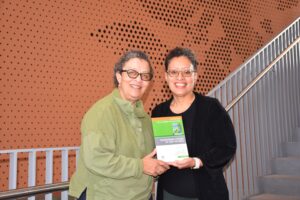
A recent study published in the prestigious journal Nature Medicine has revealed that maintaining physical activity may significantly delay the onset of Alzheimer’s-related memory loss symptoms. This discovery adds to the growing body of evidence supporting the benefits of exercise, not only for general health but also for cognitive resilience.
The research, conducted by a team of scientists, underscores the importance of staying active, particularly for individuals at risk of Alzheimer’s disease. The study found that regular physical activity can slow the accumulation of tau, a harmful brain protein associated with memory loss in neurodegenerative diseases.
Key Findings of the Study
The study meticulously tracked 296 adults aged between 50 and 90, all of whom had normal cognitive health at the study’s outset. Over several years, researchers monitored their physical activity levels and conducted brain scans to assess changes. The results were striking: while physical activity did not reduce amyloid plaques, another type of harmful brain protein, it significantly impacted tau levels, which are known to disrupt thinking and memory.
Interestingly, the benefits of physical activity were observed to increase up to 7,000 steps per day. Beyond this threshold, the positive effects plateaued, suggesting that a daily goal of 7,000 steps is sufficient for cognitive protection. This finding challenges the common belief that 10,000 steps are necessary for optimal health benefits.
Implications for Alzheimer’s Prevention
The implications of these findings are profound. Walking, a simple and accessible activity, could play a crucial role in slowing down memory decline in individuals showing early signs of Alzheimer’s disease. Wai-Ying Wendy Yau, a cognitive neurologist at the Mass General Brigham Department of Neurology and the study’s lead author, emphasized the accessibility of walking as a preventive measure.
“We want to empower people to protect their brain and cognitive health by keeping physically active. Every step counts, and even small increases in daily activities can build over time to create sustained changes in habit and health,” Yau stated, according to Psypost.
Incorporating walking into daily routines, along with a balanced diet, could be a practical strategy for maintaining brain health and delaying the progression of Alzheimer’s symptoms.
Context and Expert Opinions
This study’s findings align with previous research highlighting the benefits of physical activity for cognitive health. Dr. Maria Carrillo, Chief Science Officer at the Alzheimer’s Association, noted that exercise has long been associated with reduced risk of cognitive decline. “This study adds to the evidence that physical activity is a crucial component of brain health,” she commented.
Historically, the link between physical activity and brain health has been explored extensively. In the mid-20th century, researchers began to understand the role of exercise in promoting neuroplasticity—the brain’s ability to form and reorganize synaptic connections. This study further solidifies the connection between exercise and cognitive resilience, particularly in the context of Alzheimer’s disease.
Looking Forward
The findings of this study have significant implications for public health strategies aimed at reducing the burden of Alzheimer’s disease. Encouraging regular physical activity, particularly walking, could be an effective, low-cost intervention to delay the onset of memory loss symptoms in at-risk populations.
As researchers continue to explore the relationship between physical activity and cognitive health, future studies may focus on identifying specific types of exercise that offer the most significant benefits. Meanwhile, public health campaigns could leverage these findings to promote physical activity as a key component of Alzheimer’s prevention strategies.
In conclusion, this study provides compelling evidence that staying physically active, particularly through walking, can play a vital role in slowing the progression of Alzheimer’s-related memory loss. As the global population ages, such findings are increasingly important for developing effective interventions to combat this debilitating disease.





